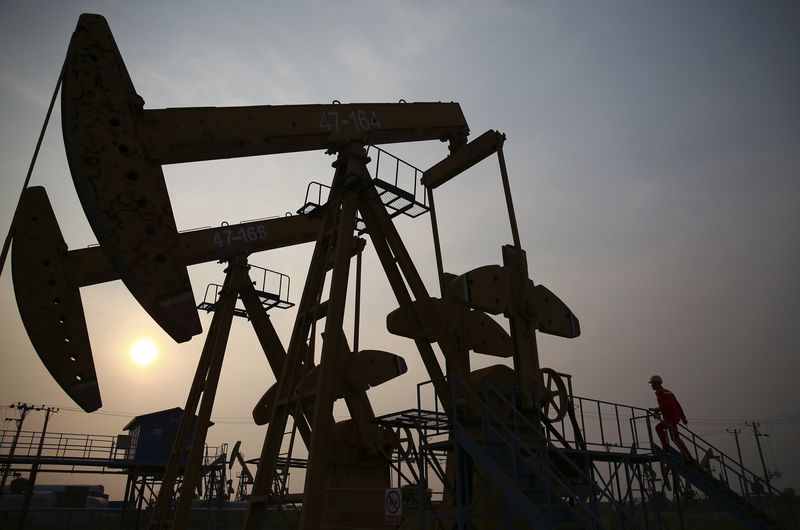(Bloomberg) -- Russia’s oil industry is feeling the pressure of a possible return of production caps. In fact, by sacrificing a fraction of output, the companies could see their stocks rise.
Fresh output curbs may push crude prices up, benefiting Russian producers just as they did during the cuts that began last year. The Moscow Oil & Gas Index has gained more than 36 percent since the initial output pact between OPEC and Russia was reached almost two years ago.
The Organization of Petroleum Exporting Countries has signaled it will consider a return to cutting output next year as oil prices wilt in the face of another surge in U.S. shale production. Russian oil bosses will now meet with Energy Minister Alexander Novak on Thursday to share their views as they put together investment plans for next year, according to people familiar with the matter.
“History shows that we are able to turn production cuts to our advantage,” said Alexander Kornilov, an Aton LLC analyst in Moscow. “If we look at how the Russian oil and gas index has moved since 2016 -- when the country first agreed on production cuts with OPEC -- everything becomes clear.”
On Monday, Novak and Saudi Energy Minister Khalid Al-Falih discussed the agenda of the Nov. 11 meeting between OPEC and its allies in Abu Dhabi, an official familiar with the matter said, asking not to be identified as the information isn’t public yet. While there has been talk in the market that the group should consider renewed output cuts, Russia currently isn’t ready for such a decision, the official said on Wednesday ahead of the meeting.
Russian crude production has risen to a post-Soviet record of 11.4 million barrels a day following the country’s June agreement with OPEC to ease output caps. The hike was driven mainly by state-run oil giant Rosneft PJSC, which this week said that its production might increase by a further 4 percent in 2019.
With regard to the extent of any new output caps, “I believe they wouldn’t be that significant,” Raiffeisen Centrobank analyst Andrey Polischuk said, adding that next year would be no worse than 2018. “The reality may turn out not so grim for Russian big oil.”
